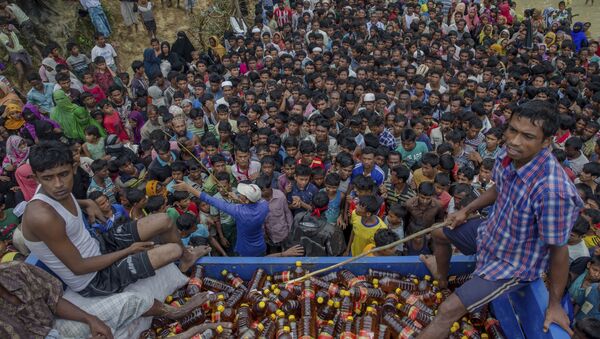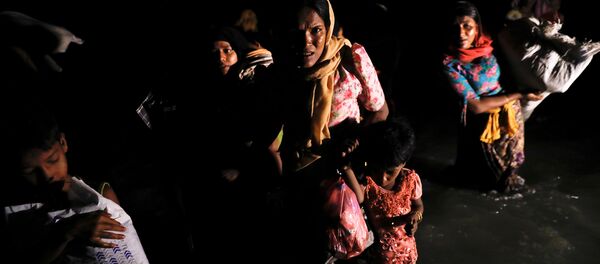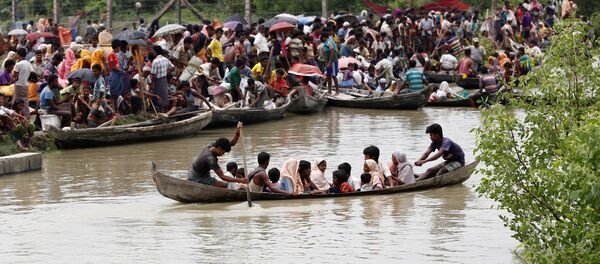“There is no ethnic cleansing and no genocide in Myanmar,” Myanmar’s national security adviser U Thaung Tun told a UN open session on the crisis in his country.
The angry denial came after UN Secretary General Antonio Guterres described the ongoing conflict in Myanmar as “the world’s fastest developing refugee emergency and a humanitarian and human rights nightmare”.
U Thaung Tun said that, concerned as it was by reports of thousands of people fleeing the country, the government needed to carefully analyze the reasons for the “exodus,” which he blamed on “terrorists.”
He insisted that half of Muslim villages in the country’s northern Rakhine state remain intact.
Meanwhile, United Nations humanitarian agencies are being denied access to the conflict zone and are unable to bring food, water and medicine to civilians stranded there.
Simultaneously, aid workers in Bangladesh warn of a looming humanitarian catastrophe for hundreds of thousands of refugees kept in camps along the border.
The conflict between the country’s Buddhists and Muslims, which actually originates from the 19th century, intensified on August 25, 2017, when Muslim insurgents of Rohingya origin attacked security posts in Rakhine.
The attacks prompted a tough response by Myanmar’s authorities, resulting in clashes and the death of hundreds of Rohingya, while thousands have fled the conflict zone.




